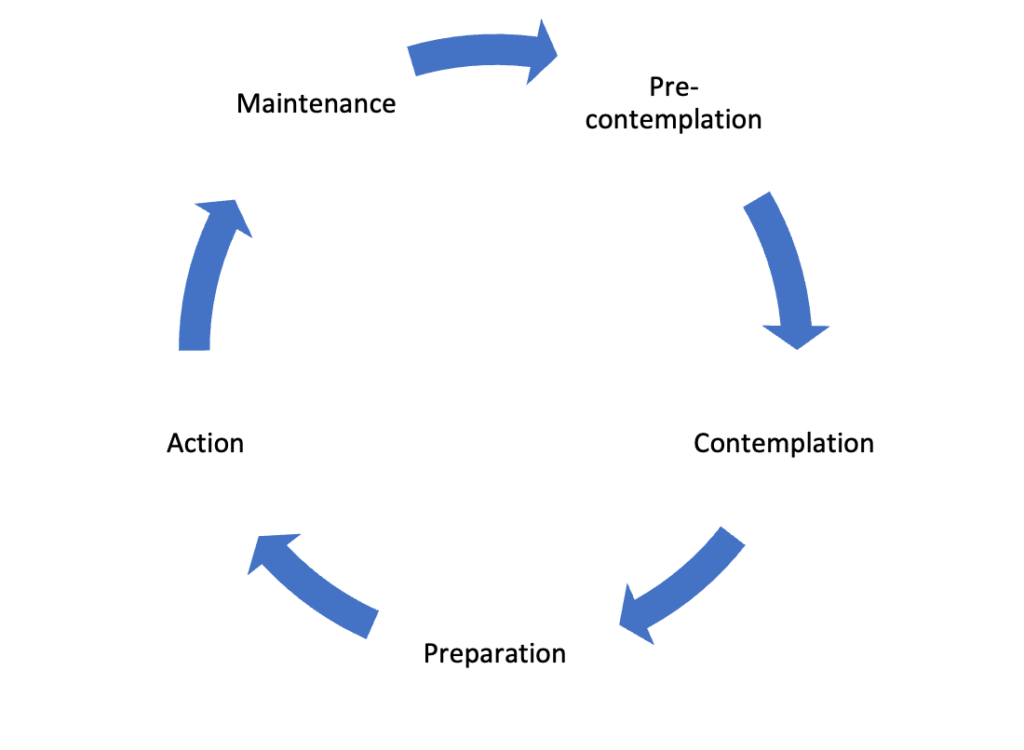Have you ever found yourself feeling stuck and unable to change a behaviour? Not having the motivation to make the necessary change? Feeling like ‘it’s just not the right time yet’? This might be because you are still ambivalent about changing.
The stages of change model (Prochaska et al., 1992) describes 5 stages that individuals experience when trying to change. Research shows that this model is an effective tool to help change a broad spectrum of behaviours, including addictions (Rahian, N. & Cogburn, M., 2023). It is important to note that it is common, and normal, to switch between stages and fall back to a stage we had previously ‘completed’, as the changing process is NOT linear.

- Precontemplation: At this stage, individuals may not see their behaviour as a problem, and therefore, may not think about changing it. There can be resistance to make any modification and/or to receive support. There is often denial about the problematic behaviour.
- Contemplation: In this second phase, individuals are starting to recognize and acknowledge that the behaviour may be problematic and are starting to consider changing it. Due to the ambivalence felt towards the worthiness of the changing process, individuals can often remain stuck at this stage for some time. During the contemplation stage, individuals are usually considering the pros and cons of change, although, because the behaviour is still serving them in some way, the cons associated with the change continue to outweigh the perceived pros.
- Preparation: individuals are committed to change at this stage and have usually started taking steps toward change. An action plan is set, and the pros of changing are now outweighing the cons.
- Action: While in the action stage, individuals are actively involved in modifying their behaviour. This is usually the shortest stage, and when they are at the highest risk to go back to the initial behaviour, or, in other words, to relapse.
- Maintenance: This final stage is when individuals have maintained the changed behaviour for about six months. The risk of relapsing has reduced, and they are building their confidence in their ability to maintain the new coping strategies developed throughout the changing process.
Therapists at CFIR-CPRI can help support you to better understand what may prevent you from attaining the changes you are hoping for, and also to develop your motivation to change. Contact us via admin@cfir.ca and a member of our team will be happy to assist you.
Natalie Guenette, M.A., R. P. is a Registered Psychotherapist who works with adults in both English and French. She works with an integrative framework and provides services to those experiencing a broad range of difficulties, including substance use, depression, anxiety, self-esteem, and trauma.

